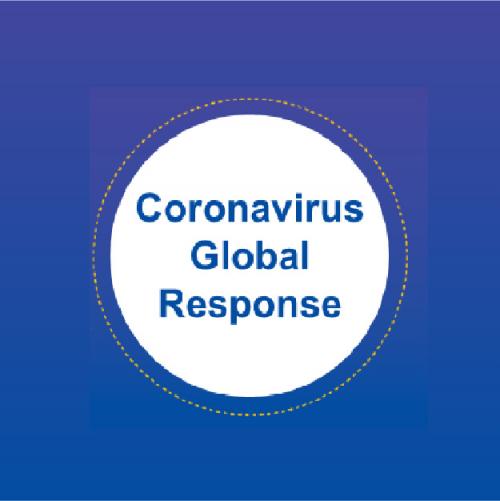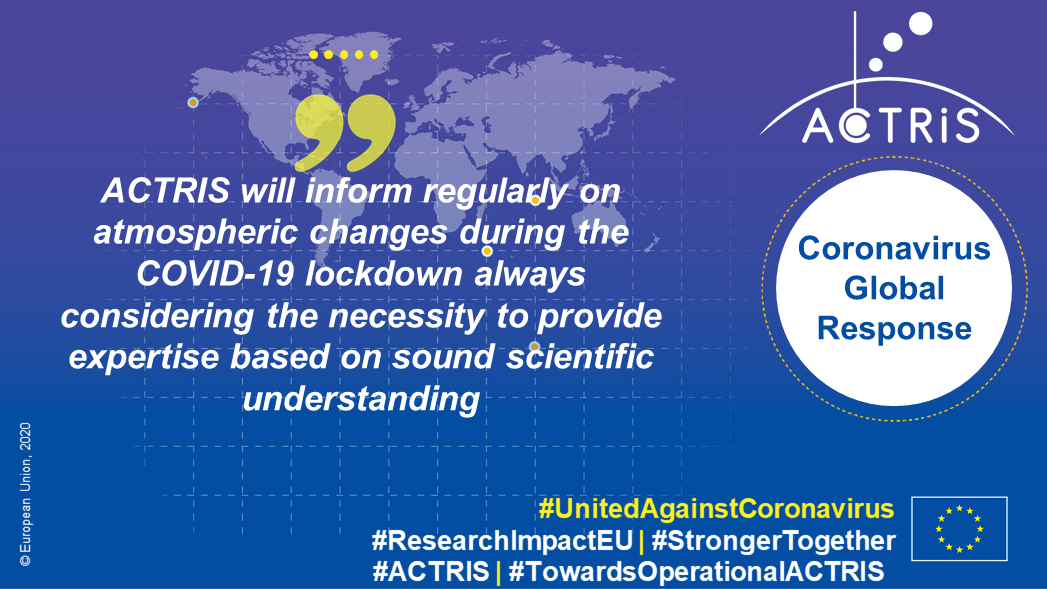National Facilities



ACTRIS measurements up and running during the lockdown situation.
Survey among ACTRIS National Facilities revealed that most of the ACTRIS observational and exploratory platforms are operational. Within the context of the current COVID-19 outbreak, ACTRIS is continuing to provide access to data on air quality and atmospheric composition. This is of particular interest and importance as it provides us with unique information measured from the ground of the European air quality and atmospheric composition during the lockdown. ACTRIS complements, in a fundamental way, satellite observation and modelling analysis. The near-real time data are available through the ACTRIS Data Centre (https://actris.nilu.no/).
Short distance transmission of SARS-CoV-2 via airborne particles.
Newspapers and social media are flooded with facts and news connected to SARS-CoV-2 outbreak and its consequences on our society.
Today’s headline on several national and global media and websites (e.g. Repubblica, BBC) recommended the use of masks as studies indicate that particles can carry the virus (1). The short distance ( < 8m) transmission of SARS-CoV-2 via airborne particles is also being investigated e.g. by the Finnish researchers from VTT Technical Research Centre of Finland, Aalto University, University of Helsinki and the Finnish Meteorological Institute as well by researcher at the Massachusetts Institute of Technology. They are studying how pathogens, such as corona virus, can be transported by the very small particles that are emitted from the respiratory tract when coughing, sneezing or simply talking (2,3).
Estimates of the effects of lockdown on air quality is complex and in progress, and the meteorological conditions are crucial.
In addition to the transmission potential of SARS-CoV-2 on short distances, a lot of attention has also been given to the large scale environmental changes resulting from lockdowns spreading across Europe, for example, from a reduction in seismic noise (4) to atmospheric composition changes as reported from ESA and Copernicus satellite observations (5) and CAMS modelling analysis (6). However, long-term and quality assured data need to be applied in the evaluation of the correlation results as meteorological condition can obstruct such the analysis (7).
The COVID-19 crisis is demanding urgent responses from the scientific community. Given the inherent complexity of the atmospheric processes, ACTRIS will inform regularly always considering the necessity to provide expertise based on sound scientific understanding.
Links:
3 https://jamanetwork.com/journals/jama/fullarticle/2763852
4 https://www.nature.com/articles/d41586-020-00965-x












